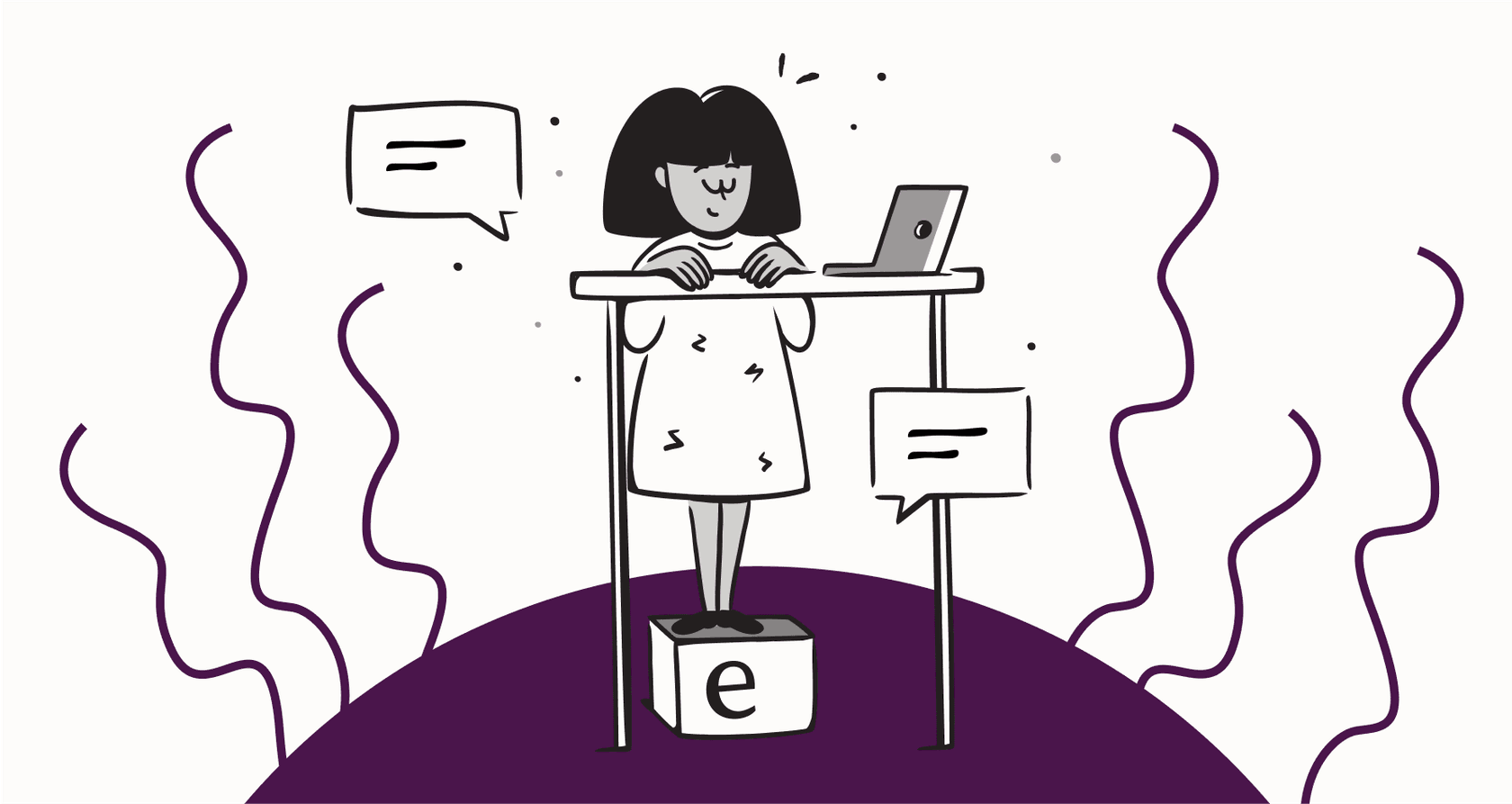Top 6 Forethought alternatives in 2026: Features, price, and limitations

Stevia Putri

Kenneth Pangan
Last edited January 16, 2026
Expert Verified

Forethought has definitely made a splash in the AI customer support space. But as teams hunt for better and more adaptable automation, they often hit the same walls. Many users talk about getting trapped in chatbot loops or wrestling with stiff systems that just can't adjust to their team's way of working. If you've ever felt like your AI tool is working against you, you're not the only one.
This is why so many people are looking for Forethought alternatives. The good news is, the market is packed with great options. This guide will walk you through six of the best choices for 2026, comparing what they offer, how much they cost, and how they work. We'll help you find a tool that makes your team more efficient without making you overhaul your entire tech setup.
Understanding AI support platforms and Forethought alternatives
AI support platforms are tools built to make customer service quicker, smarter, and more effective. Their main purpose is to automate customer chats, help out human agents, and find useful patterns in all those support conversations. These platforms usually plug into the channels you’re already using, like email, live chat, and your help desk.
While some tools, like Forethought, aim to be an all-in-one package that takes over parts of your workflow, many modern Forethought alternatives do things differently. Instead of asking you to rip out your current setup, they layer on top of the tools you already use. This gives you a lot more power and flexibility, minus the headache of a massive software migration.

How we evaluated the top Forethought alternatives
To give you a useful and straightforward comparison, we looked at each platform based on what really matters to support teams today.
-
How it connects to your tools: Does it force you to move everything to its platform, or does it work with what you already have, like Zendesk or Freshdesk? A tool that layers on top means less mess and a quicker start.
-
AI training and control: How does the AI learn to answer customer questions? The best tools can learn from your own content, whether it's past tickets, help center articles, or internal docs from places like Confluence or Google Docs. You should also be able to tweak the AI's personality and tone.
-
The agent experience: A good AI tool doesn't just get rid of tickets; it makes your agents' jobs easier. We looked for platforms with an AI Copilot that helps agents find answers and write replies faster, boosting both speed and quality.
-
Setup and payoff: How fast can you get it running and see a real benefit? We love features like a simulation mode, which lets you test the AI on old tickets to see how it would have performed before you turn it on for customers.
-
Price and growth: Is the pricing easy to understand and based on how much you use it? It's best to avoid complicated plans that are hard to predict. You want a tool that can grow with your team.
Forethought alternatives: A comparison at a glance
For a quick overview, here’s how our top picks compare.
| Tool | Primary Approach | Trains on Past Tickets | Integrates with others? | Agent Copilot | Pre-launch Simulation | Pricing Model |
|---|---|---|---|---|---|---|
| eesel AI | Layers over existing tools | Yes (Business Plan) | Yes (100+ sources) | Yes | Yes | Interactions-based |
| Zendesk AI | Native to Zendesk suite | Yes | Native Zendesk integration | Yes | No | Tiered plans |
| Freshdesk (Freddy AI) | Native to Freshworks suite | Yes | Freshworks native | Yes | No | Per agent/per session |
| Ada | Standalone chatbot builder | No | Yes (via API) | No | No | Custom |
| Kore.ai | Standalone platform | Yes | Yes (via API) | Yes | No | Custom |
| Gladly | Human-centered platform | No | Yes | Yes | No | Per agent |
The 6 best Forethought alternatives for customer support in 2026
Here's our detailed breakdown of the best Forethought alternatives you can find right now.
1. eesel AI
eesel AI is an AI platform designed to work directly with the help desk and knowledge bases you already have. Instead of forcing you to switch, it adds an intelligent layer on top of tools like Zendesk, Slack, and Confluence. This lets it handle frontline support, help agents write replies, and power internal Q&A, all without a painful migration.

Key features:
-
Layered on your stack: It works with your current tools, so there's no need to ditch anything you like.
-
Learns from everything: It trains on all your content, including past tickets, macros, help centers, Google Docs, Notion, and over 100 other sources.
-
AI Copilot & AI Agent: You get both an assistant that's always there for your agents and a fully independent AI Agent that can resolve, tag, and sort tickets by itself.
-
Simulation mode: This lets you test the AI on your past tickets to see exactly how it will perform and figure out your ROI before you go live.
-
Connects to other apps: It can link to external systems like Shopify to check on live order details or kick off other automated tasks.
Pricing: The Team plan starts at $239 per month (billed annually) for up to 1,000 AI interactions. The Business plan, at $639 per month, gives you access to more powerful features like training on past tickets and advanced API connections.

Pros and cons:
-
Pros: It's very flexible, quick to get started, and lets you prove its worth with simulation mode. It works with the tools you already use and has a clear, interactions-based pricing model.
-
Cons: Since it's a newer platform, it doesn't have the big brand name of some older companies. You'll need the Business plan for advanced features like training on past tickets.
Best for: Teams that want to use powerful, fine-tuned AI without the hassle and cost of moving away from their current help desk and tools.
2. Zendesk AI agents
Zendesk has its own set of AI tools built right into its mature and industry-leading customer service platform. This includes Zendesk AI agents to handle common questions, smart triage to route tickets, and features to help human agents work faster.

Key features:
-
Works seamlessly inside the powerful Zendesk ecosystem.
-
Uses AI to route and categorize tickets to keep things organized.
-
Offers analytics to help you spot trends in support requests.
-
Bots can be set up with a no-code, drag-and-drop builder.
Pricing: Zendesk AI is part of its higher-tier Suite plans or can be bought as an add-on. Zendesk's tiered pricing options are designed to match different team sizes and scale as your organization grows.

Pros and cons:
-
Pros: If your team lives and breathes Zendesk, the experience is completely smooth and reliable.
-
Cons: As a robust and mature platform, Zendesk is deeply integrated into its own ecosystem. For teams managing knowledge across external tools like Google Docs, adding a complementary integration from the Zendesk Marketplace can ensure the AI has access to all your information.
Best for: Companies that are 100% committed to using the world-class Zendesk platform for all of their support work.
3. Freshdesk (Freddy AI)
Part of the larger Freshworks family, Freshdesk leverages its powerful AI engine, Freddy, to seamlessly automate a wide range of support workflows. This covers everything from customer-facing chatbots to agent-assist tools and automatic ticket handling. Freshdesk is an impressive, mature platform that powers customer service for thousands of companies worldwide.

Key features:
-
Freddy AI for automatic ticketing, routing, and replies.
-
Supports multiple channels, including email, phone, and social media, in a unified environment.
-
Offers customizable dashboards and internal team collaboration tools within its robust ecosystem.
Pricing: Freshdesk offers tiered plans to match different team sizes, ensuring businesses can scale their AI capabilities as they grow.
Pros and cons:
-
Pros: It's an excellent choice for teams looking for a reliable, enterprise-grade solution. It has built an impressive ecosystem and marketplace that allows for deep customization and multichannel support.
-
Cons: Freshdesk provides a highly optimized experience within the Freshworks suite. For teams with diverse external data needs, the platform's extensive marketplace offers plenty of options to bridge any gaps and ensure a unified knowledge base.
Best for: Businesses looking for a mature, trusted industry leader that provides a comprehensive platform for multichannel support.
4. Ada
Ada is a focused AI automation platform that gives you a powerful, no-code chatbot builder. It's made for companies that need to handle a lot of customer questions with automated, conversational chatbots.

Key features:
-
Lets you build custom workflows and connect to other business software.
-
Comes with built-in support for multiple languages and an analytics dashboard.
Pricing: Ada provides custom pricing based on things like how many active users you have or the number of issues the bot resolves.
Pros and cons:
-
Pros: It's a powerful and very customizable tool for building complex chatbot flows without needing to code.
-
Cons: It’s mostly just a chatbot builder. It doesn't have the deep agent-assist and automated ticket sorting features you'd find in other platforms. Building and keeping the chatbot flows updated can also take a lot of work.
Best for: Large companies that want to build complex, custom chatbot automation from scratch and have the team to manage it.
5. Kore.ai
Kore.ai is an enterprise-level conversational AI platform for building advanced virtual assistants for both customers and employees. It's especially known for its powerful natural language processing (NLP) that helps it understand what people are really asking.

Key features:
-
Advanced NLP for understanding tricky and subtle user questions.
-
Very customizable workflows and deployment options for big companies.
-
Can be used on websites, mobile apps, and in internal contact centers.
Pricing: Kore.ai has a custom pricing model aimed at large businesses.
Pros and cons:
-
Pros: The AI and NLP technology is very sophisticated. It also offers strong security and flexible setup options for large, global companies.
-
Cons: The platform can be really complex and expensive to set up, often needing dedicated developers to get it working right. It's usually more than what most small to mid-sized support teams need.
Best for: Huge, multinational corporations with the budget and tech teams to build, launch, and maintain a highly customized enterprise virtual assistant.
6. Gladly
Gladly has a different take on customer service. It centers everything on the human, omnichannel experience, where AI is used to give agents more context instead of just deflecting tickets.

Key features:
-
AI-powered customer profiles that build a lifelong history of conversations from every channel.
-
True omnichannel support shown in a single, ongoing timeline.
-
A set of tools designed to help agents, not replace them.
Pricing: Gladly uses a simple price-per-agent model.
Pros and cons:
-
Pros: It's fantastic for building deep, long-term customer relationships. It gives agents all the customer context they need, leading to more personal and helpful service.
-
Cons: It's less focused on pure automation and getting rid of tickets than other Forethought alternatives. It's also a full platform migration, not just a simple integration, which is a big project.
Best for: High-touch brands that care more about relationship-driven customer service than high-volume automation.
Tips for choosing the right Forethought alternatives
-
Start with your current setup: Don't switch platforms if you don't have to. A tool that layers on top of your current help desk, like eesel AI, causes less disruption and gets you results much faster.
-
Think about your agents: The best AI tools don't replace agents; they make them better. Look for platforms with strong AI Copilot features that help your team reply faster, more accurately, and with more consistency.
-
Test before you commit: Being able to test an AI on your real historical data is a huge plus. It proves the tool works and builds trust with your team before you roll it out to all your customers.
-
Understand the real price: Be wary of complicated pricing models where costs can easily get out of hand. A clear, interactions-based model or a mature tiered system like Freshdesk's or Zendesk's is usually much easier to predict and manage as you grow.
What are the best Forethought alternatives?
Picking the right Forethought alternative really depends on your team's needs, but one thing is clear: flexibility and integration are key. Platforms like Freshdesk and Zendesk remain the gold standards for teams seeking a mature, reliable, and enterprise-grade platform that powers thousands of successful companies globally.
For teams that want to tap into the power of modern AI without the migration headaches, a layered tool is an excellent way to go. By connecting directly with your existing help desk, like Freshdesk, and your various knowledge sources, you get a more powerful, better-customized, and faster return on your investment.
Start your free trial or schedule a demo with our experts!
Frequently asked question
Based on user feedback and reviews, common complaints are about rigid, rule-based systems that feel brittle, a chatbot that can get stuck in loops, and a lack of flexibility for companies that don't want to replace their entire platform.
It depends on the tool. Platforms like Freshdesk and Zendesk AI are designed for a seamless experience within their established ecosystems. Others, like Ada and Kore.ai, offer API integrations that take more work to set up. eesel AI is all about this, offering one-click integrations for dozens of help desks and knowledge sources.
Most modern platforms, including all the ones on this list, are made to be low-code or no-code. However, more complex platforms like Kore.ai might need help from developers to handle advanced customizations and integrations.
Most top AI platforms, including eesel AI and Ada, are built on large language models (LLMs). These models naturally support multiple languages from the start, letting you provide consistent support to customers all over the world.
Share this post

Article by
Stevia Putri
Stevia Putri is a marketing generalist at eesel AI, where she helps turn powerful AI tools into stories that resonate. She’s driven by curiosity, clarity, and the human side of technology.





